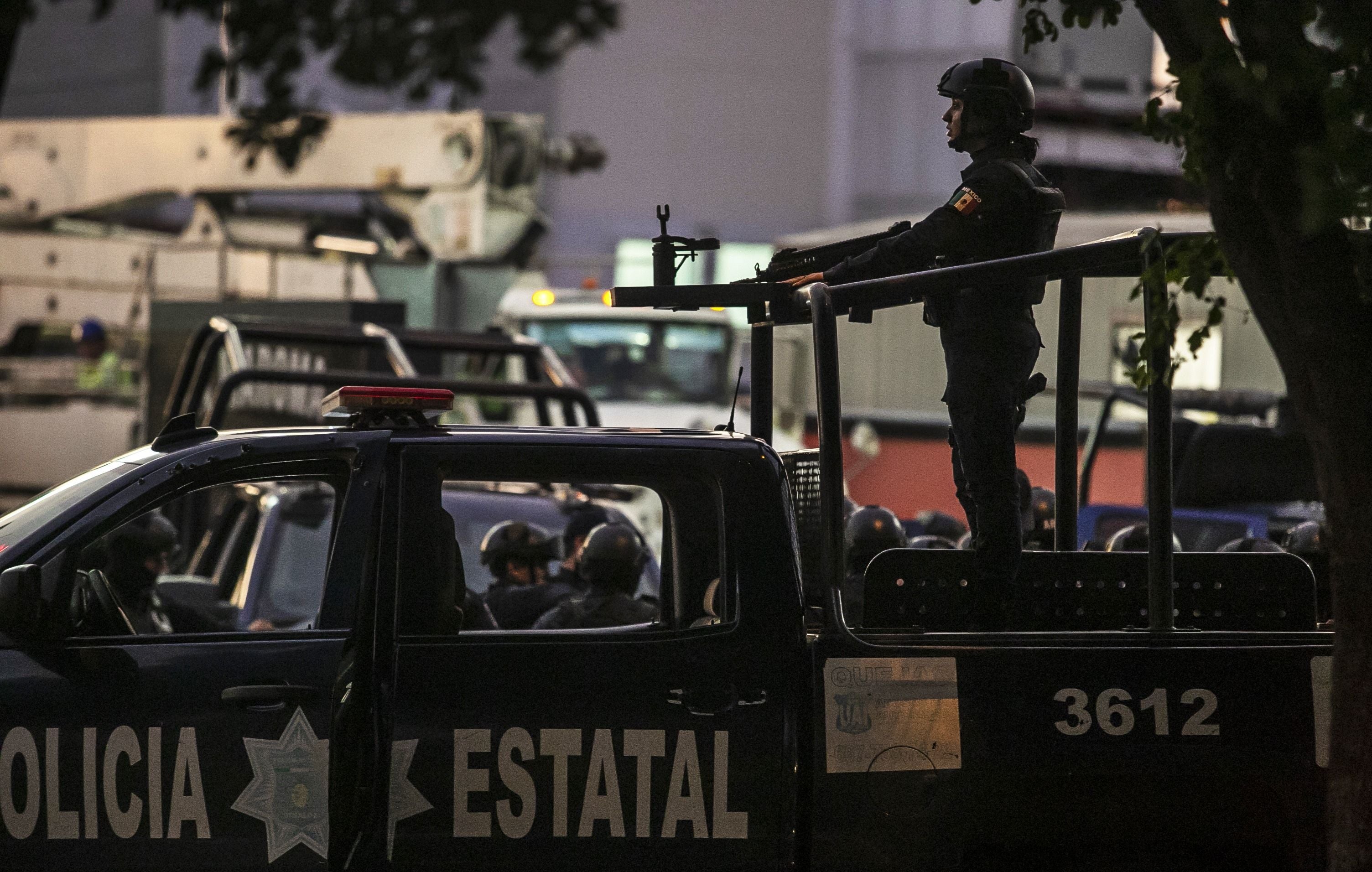‘Extremely dangerous’ radioactive material stolen in Mexico truck hijacking
Authorities warn public that contact with materials inside the truck ‘can prove fatal’. Chris Havler-Barrett reports from Mexico City

The Mexican government has warned inhabitants of the densely populated central states that a truck carrying highly radioactive material was stolen from the town of Teoloyucan during an armed heist in the early hours of Sunday.
National security agencies warned that the stolen equipment – a QSA Delta 800 gamma ray projector – is extremely dangerous, and could deliver a fatal dose of radiation to anyone who comes into direct contact with it.
Teoloyucan, the district in which the incident occurred, is a satellite town in the Estado de Mexico, the region which surrounds Mexico City. The vehicle, a Toyota Hilux, was carrying industrial inspection equipment containing the radioactive elements iridium-192, selenium-75 and ytterbium-169 when it was hijacked.
A warning to the public about the severity of the danger posed by these elements was issued by the National Commission for Nuclear Security and Safeguarding, along with the Commission for National Civil Protection (CNPC), the civil defence wing of the Mexican government.
“At 10am today, there was a robbery of radiographic equipment reported,” it said. “If the radioactive material is extracted from the container, is moved, or makes direct contact with any persons handling it, permanent injury can occur in minutes.
“In case of making direct contact with the source over the course of hours or days, the effects can prove fatal.”
CNPC teams have been deployed across almost the entirety of the central region of Mexico, with the missing truck believed to be in any one of nine states – a number which includes the capital Mexico City.
The region is the most densely populated area of the country, with more than 46.5 million inhabitants, and includes the major regions of Puebla, Guerrero and Queretaro.
The public have been asked to remain vigilant and, in the event of discovering the radioactive material, to contact the CNPC and to stay away from both the machinery and the material contained within. Anyone who comes within 30 metres of the device was asked to notify the CNPC, as they may be at risk of radiation poisoning.
The commission has mobilised regional and federal forces in an attempt to locate the vehicle, but there are currently no leads as to the whereabouts of either the hijackers or the stolen materials.
It remains unclear if Sunday’s robbery was directly related to the cargo, but with the long-term economic effects of Covid-19 causing increasing hardship in a country unable to provide a social safety net to those most in need, incidents such as these are on the rise. Last month, canisters of chlorine gas were stolen in another hijacking in the Estado de Mexico and throughout the pandemic, medical oxygen supplies have been routinely waylaid by criminals looking to sell them on the black market.
This is not the first time that radioactive materials have been hijacked in Mexico, where the long-running war between the drug cartels and the government has seen the armed robbery of trucks become the norm. In 2013, a truck carrying radioactive medical waste was hijacked in Tepojaco, some 40km away from Teoloyucan. Authorities at the time feared that the radioactive material stolen may have been intended to form part of a dirty bomb. In that instance, the truck and the materials on board were safely recovered by authorities.
The Ministry of Public Security could not be reached for comment and the office is yet to issue a public statement on the circumstances surrounding the robbery.
Join our commenting forum
Join thought-provoking conversations, follow other Independent readers and see their replies
Comments